Porsche 356 Classic Cars For Sale
The Porsche 356 was the first production vehicle from Porsche, marking the start of one of the world's most successful sports car brands. Built between 1948 and 1965, it quickly became a symbol of German engineering and exceptional driving performance. With its simple yet elegant design and robust engineering, the Porsche 356 has become a sought-after collector's item. This article explores the history, key models, and important buying criteria of this iconic series.
Search results
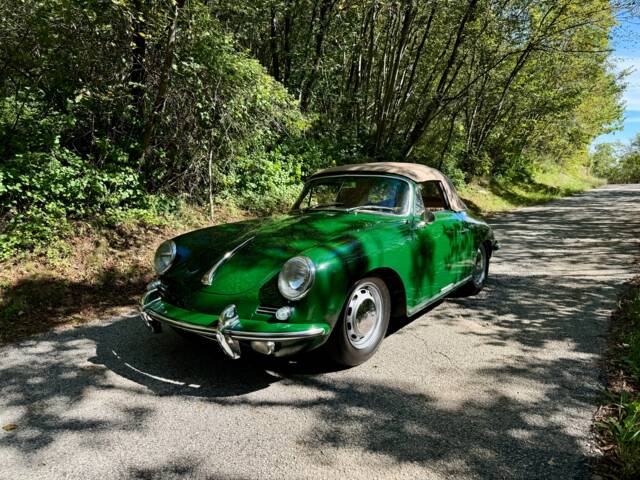
1965 | Porsche 356 C 1600 SC
EU Market Total Restored
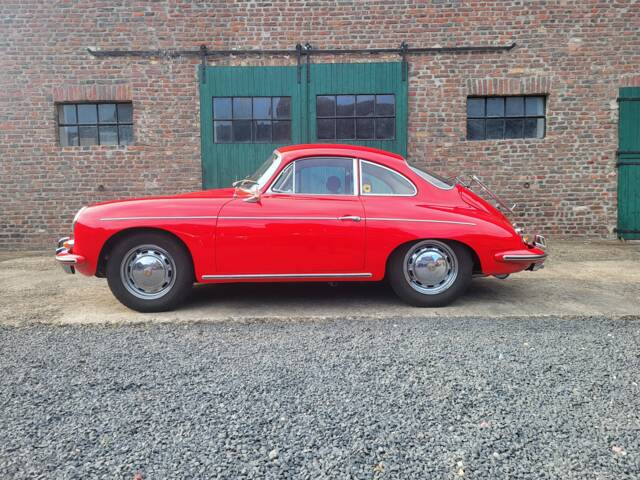
1964 | Porsche 356 C 1600 SC
Porsche 356 SC Matching Numbers 95 PS
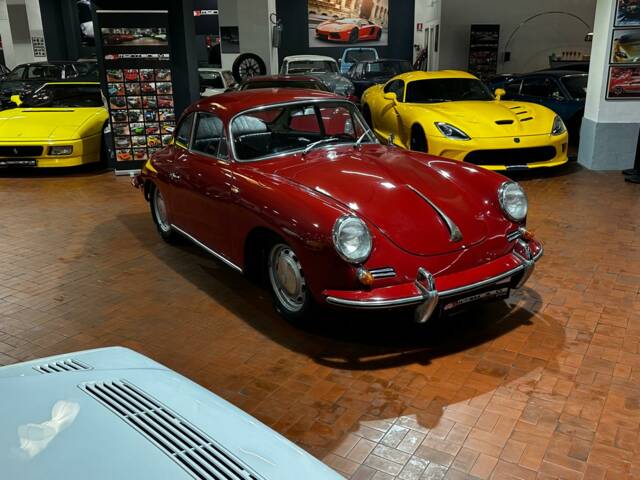
1964 | Porsche 356 C 1600 SC
PORSCHE 356 SC 95CV
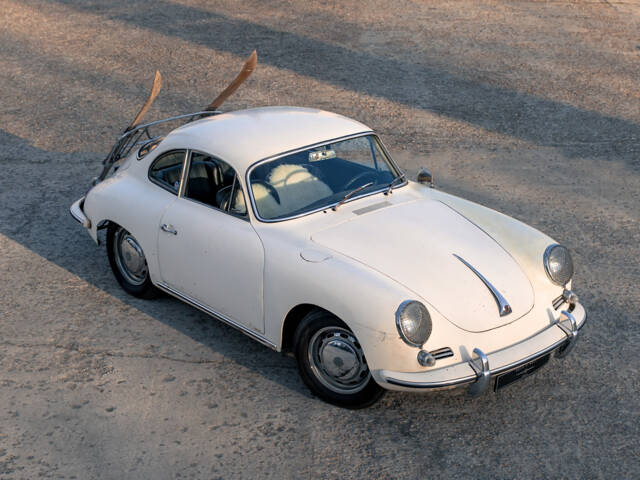
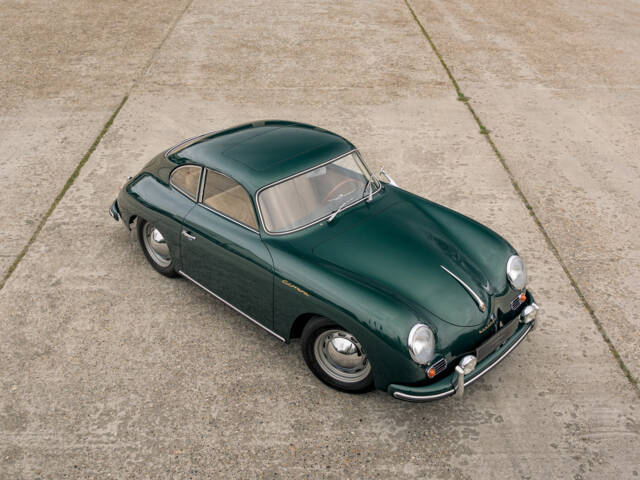
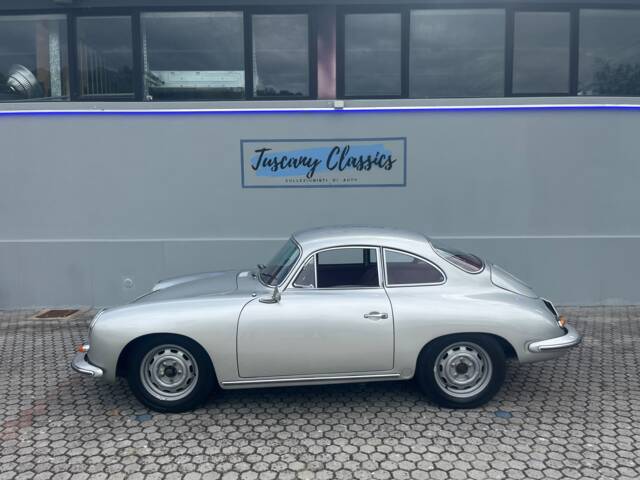
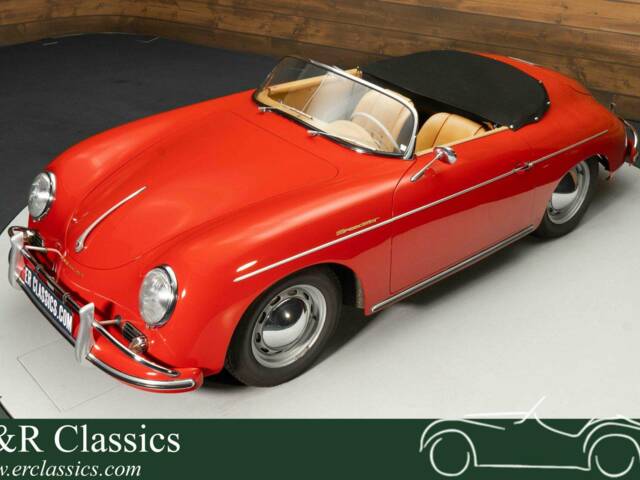
1958 | Porsche 356 A 1600 Speedster
Porsche 356 A Speedster | Gerestaureerd | 1958
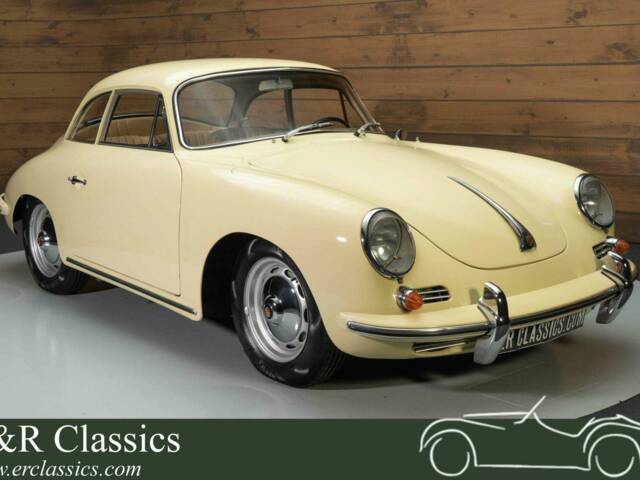
1961 | Porsche 356 B 1600 Super Karmann-Hardtop
Porsche 356 B Karmann Coupe | 1 van 600 gebouwd | 1961
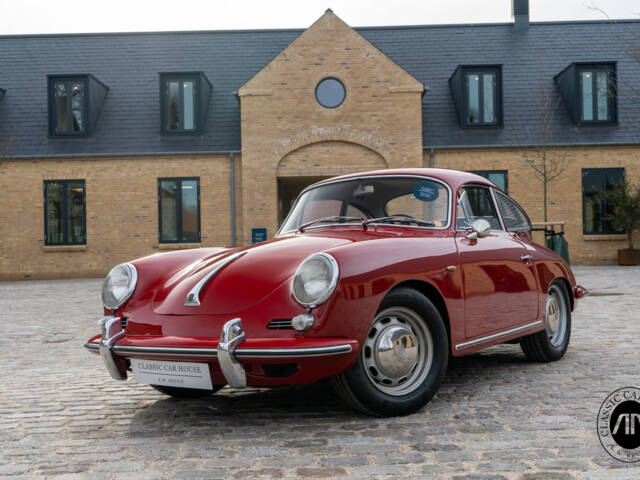
1963 | Porsche 356 C 1600
Matching numbers, Italian-delivered Porsche 356 C
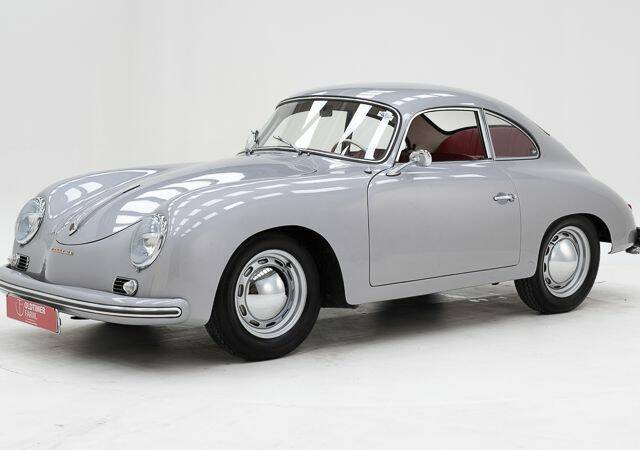
1958 | Porsche 356 A 1600
1958 Porsche 356 A '58
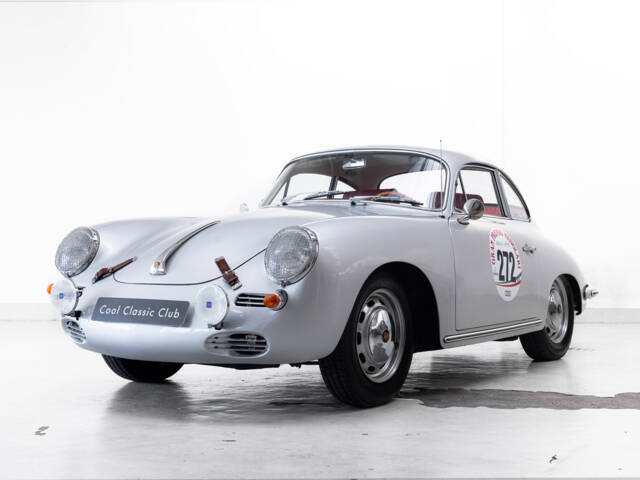
1963 | Porsche 356 C 1600 SC
C 1600 SC - Matching - FIVA Card - Upgrade's -
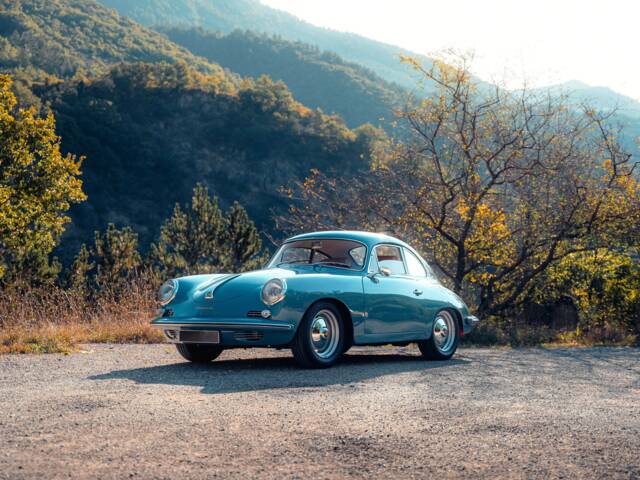
1960 | Porsche 356 B 1600 Super 90
Porsche 356 BT5 Coupé - Restauration totale - Garantie
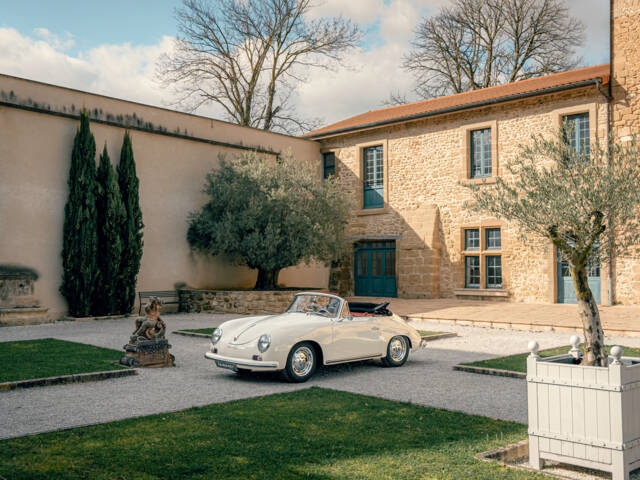
1958 | Porsche 356 A 1600 S
Porsche 356 AT2 1600 S Cabriolet - Restauration totale - Matching Numbers
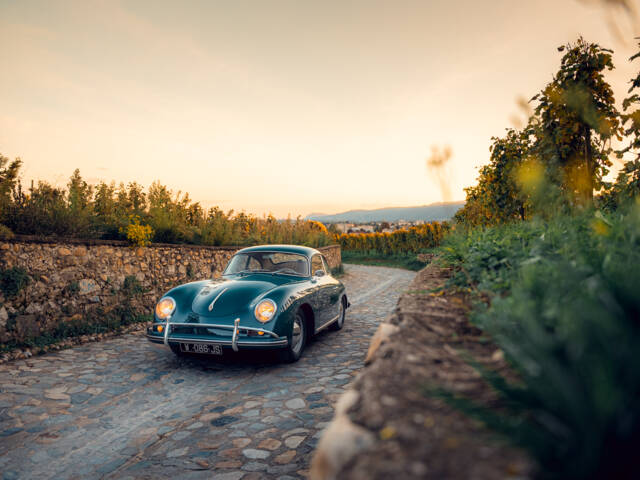
1958 | Porsche 356 A 1600
Porsche 356 AT2 Coupé - Restauration totale - Big Bore 1800 cc3 – Matching Numbers & colors- Garantie
Porsche 356 Classic Car: History
The Porsche 356 was first introduced in 1948 as a hand-built aluminum coupe. Developed by Ferry Porsche, the model was based on the technical foundations of the VW Beetle but set new standards in sports cars. By the early 1950s, the Porsche 356 had entered mass production and quickly won the hearts of car enthusiasts worldwide with its powerful air-cooled flat-four engines and innovative lightweight design.
Throughout its production, the Porsche 356 went through several evolutionary stages. Key variants included the 356 "pre-A," 356 A, 356 B, and finally the 356 C, renowned for their excellent craftsmanship and technical advancements. The final version, the 356 C, introduced disc brakes and the most powerful engine of the series—the 95 hp "SC" engine. These innovations made the Porsche 356 one of the most advanced sports cars of its time.
Popular Porsche 356 Classic Models
- Porsche 356 "Pre-A" (1948–1955): The earliest 356 models, known as "Pre-A," are distinguished by their narrow window frames and split windshields. These versions are highly valued by collectors as they represent the original form and vision of the Porsche 356, while later models (from 1953) received a single curved windshield.
- Porsche 356 A (1955–1959): The 356 A introduced a range of technical improvements, including a wider windshield and updated engines. Among the most desired models is the Porsche 356 A Speedster, known for its minimalist design and low windscreen, offering a particularly sporty look. The A series also introduced the famous Carrera engine with a four-camshaft configuration.
- Porsche 356 B (1959–1963): The 356 B brought visible changes, especially the higher-positioned headlights and bumpers. The 356 B also offered enhanced suspension and more powerful engines, making it a popular choice for drivers who appreciated both comfort and performance. The B series was available in two body variants: T5 (1959-1961) and T6 (1962-1963).
- Porsche 356 C (1963–1965): The 356 C was the final model in the series, featuring the most advanced technology, including disc brakes and the robust SC engine. Today, this last version is considered one of the most reliable and user-friendly variants of the 356.
Unique Features of the Porsche 356 Classic Car
The Porsche 356 stands out with its compact, aerodynamic shape and robust engineering. Its air-cooled flat-four engines combined with light weight made it an agile and powerful vehicle. The 356 is also valued for its high build quality and the timeless elegance of its aerodynamic design. Whether as a coupe, convertible, or speedster, the Porsche 356 continues to exude a unique allure, making it one of the most coveted classics.
Important Buying Criteria for Porsche 356 Classic Cars
- Body Condition: Many Porsche 356 classics, produced in the 1950s, are prone to rust issues. Pay particular attention to the sills and underbody, the "brille" around the headlights, the trunk area near the battery, the front fenders at the A-pillar, the rear below the window, and the mounts for the transverse tube with the struts.
- Originality: Over the years, numerous Porsche 356 models have been restored or modified. A high degree of originality, especially concerning the engine, transmission, and body, significantly boosts the vehicle's value.
- Engine and Mechanicals: Check the condition of the engine and gearbox. Although the air-cooled engines of the Porsche 356 are considered durable, especially in the 60 and 75 hp versions, a thorough inspection is necessary. Watch for oil leaks, the condition of the carburetors, and the heat exchangers, as repairs or replacements in these areas can be expensive. A comprehensive check-up by a Porsche specialist is essential before purchasing.
Porsche 356 Classic Car: Technical Specifications
Here is an overview of the main technical specifications and highlights of the most popular Porsche 356 classics:
| Model Range | Model Name | Series | Years | Body Styles | Engine | Power |
|---|---|---|---|---|---|---|
| Porsche 356 | 356 A 1300, 1500, 1600 | A | 1955-1959 | Coupe, Convertible | 1.3L, 1.5L, 1.6L Flat 4 Cylinder | 60-75 hp |
| Porsche 356 | 356 B 1600 | B | 1959-1963 | Coupe, Convertible | 1.6 Liter Flat 4 Cylinder | 75-90 hp |
| Porsche 356 | 356 C 1600 | C | 1963-1965 | Coupe, Convertible | 1.6 Liter Flat 4 Cylinder | 75-95 hp |
Restoration of Porsche 356 Classic Cars
Restoring a Porsche 356 can be a challenging and time-consuming task, especially when preserving or sourcing original parts. Early pre-A models require particular attention, as parts for these vehicles are scarcer. Rust is often the biggest issue with the body, so extensive metalwork is not uncommon during restoration. Overhauling the engine and gearbox is usually necessary to ensure the vehicle's performance and reliability, which may involve replacing seals, bearings, and other wear parts. Wiring often needs complete renewal as well.
Focusing on originality is crucial. Original engine and transmission combinations and well-restored bodywork significantly enhance the vehicle's value. Many specialized professionals focus on restoring Porsche 356 models and can provide valuable support in maintaining the car's historic authenticity.
Conclusion
The Porsche 356 classic car is a true icon in the world of vintage vehicles, offering both pleasure to drive and collector's value. With its timeless design and outstanding engineering, the 356 continues to impress not only in the classic car market but also on the road. At Classic Trader, you'll find an exclusive selection of Porsche 356 classics—the perfect entry into the world of classic Porsche vehicles.
FAQs about Porsche 356 Classic Cars
Why is the Porsche 356 classic car so sought after?
The Porsche 356 is not only the first production car by Porsche, making it historically significant, but it's also cherished for its sporty driving experience and elegant styling. Its timeless design and aerodynamic shape make it an icon of 1950s and 1960s automotive design.
How can I find spare parts for the classic Porsche 356?
Spare parts for the classic Porsche 356 are widely available through specialized suppliers and Porsche clubs. Additionally, numerous workshops focus on the restoration and maintenance of the 356, offering both original and replicated components.
What should I consider when buying a Porsche 356 classic car?
Pay attention to the body condition and originality of the Porsche 356. Check the wheel arches, the underside, and the weld seams. Original engine and gearbox combinations, as well as properly restored body parts, add value to the Porsche 356 classic car. A complete history and restoration documentation increases the vehicle's value. Additionally, you should take a test drive to assess its mechanical condition and ensure it drives well.